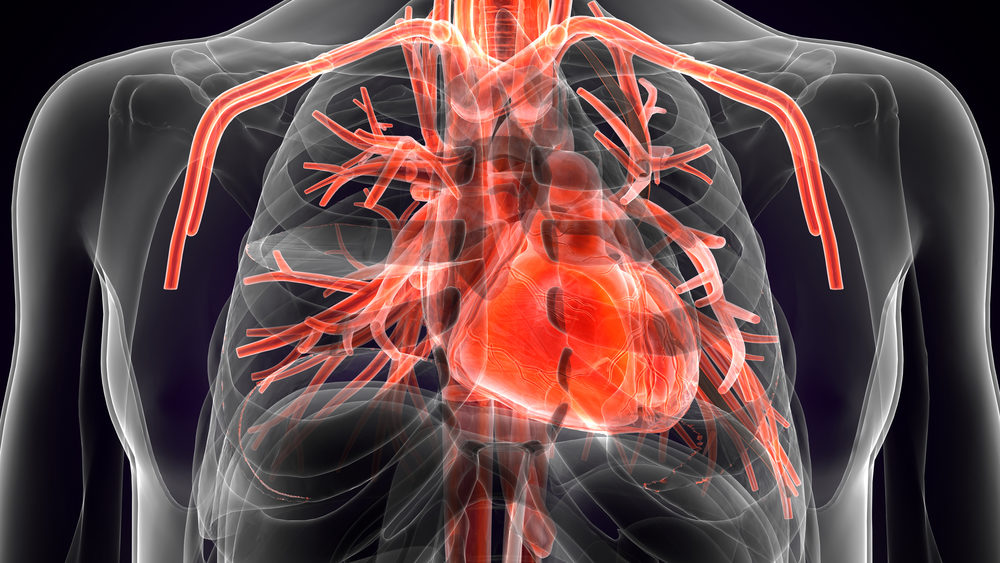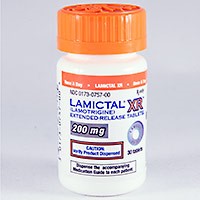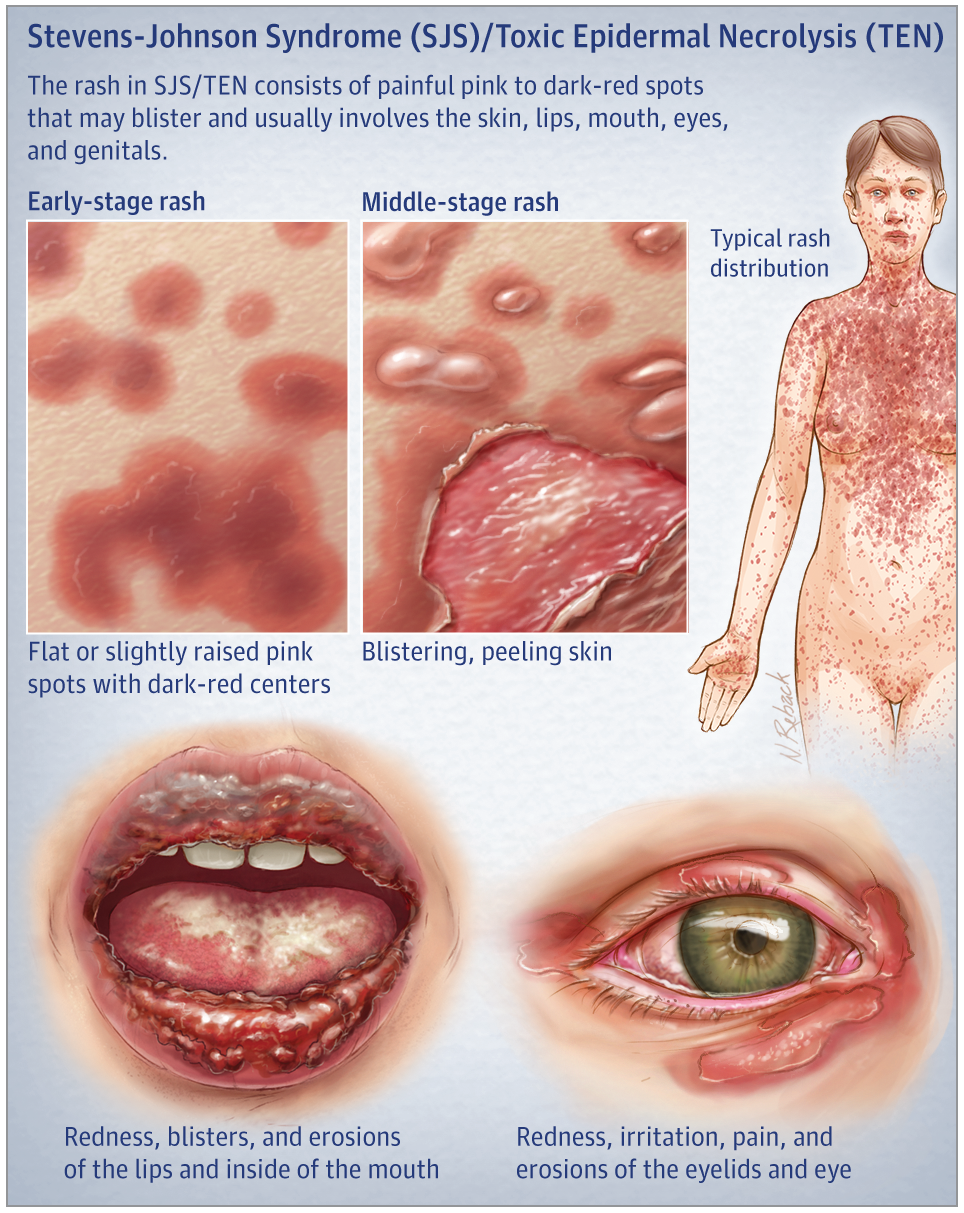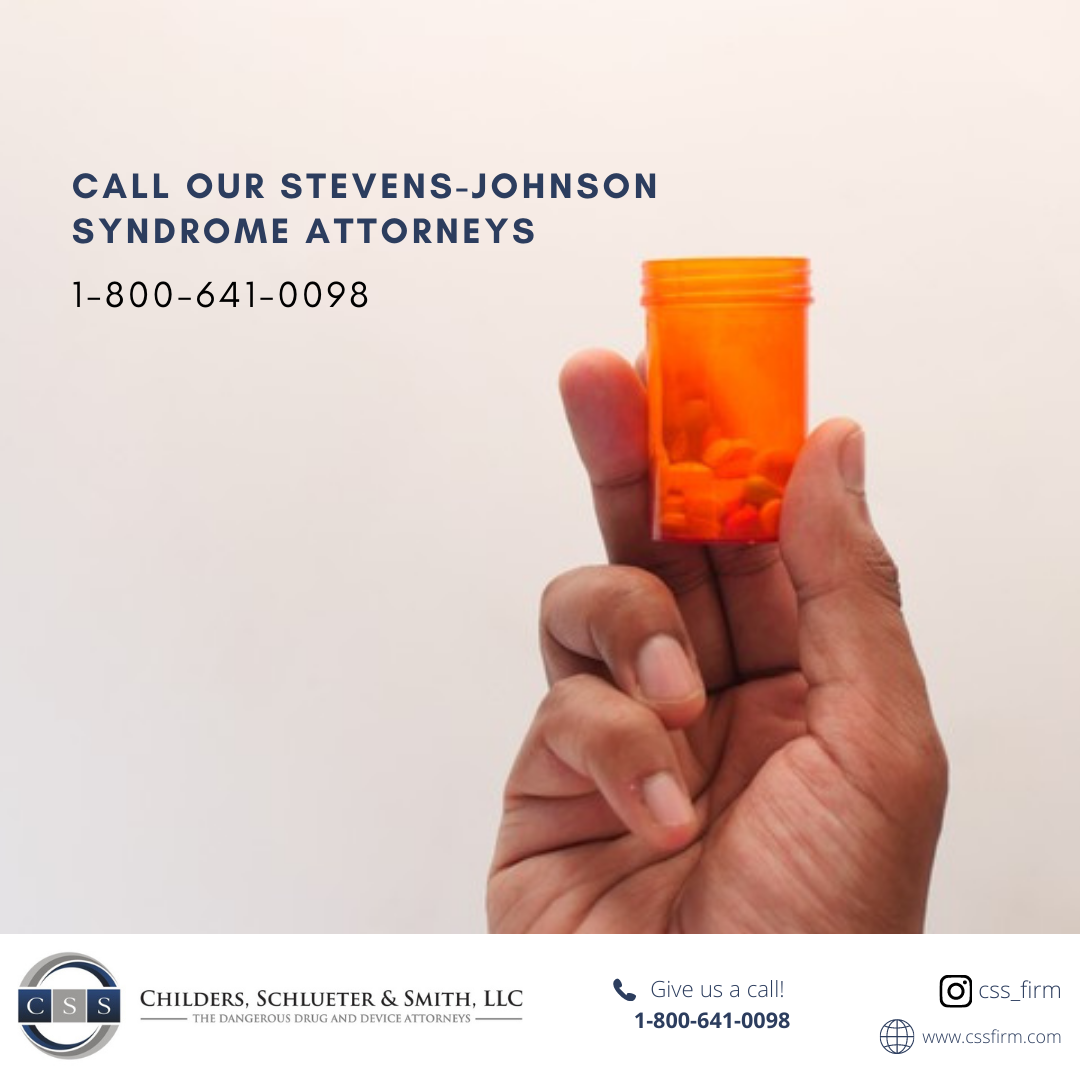Most drug manufacturers, physicians, and pharmacists we have encountered tell us (incorrectly) that “any drug can cause SJS or TEN”. According to studies and extensive research in medical publications, that statement is inaccurate.
Sometimes, SJS and TEN are the inevitable consequence of the patient’s unfortunate reaction to a drug, regardless of how carefully the drug is prescribed. However, SJS and TEN is often caused by medical errors made when a drug is prescribed or the dose is increased. Allopurinol (Zyloprim) and Lamictal (Lamotrigine) are the two drugs that frequently contribute to SJS/TEN. If you have been impacted by SJS and/or TEN, you should seriously consider hiring an experienced SJS/TEN attorney to investigate your medical care if you have been prescribed one of these drugs prior to your SJS/TEN diagnosis.
Recent Literature on High Risk Drugs for SJS/TEN
EUROSCAR was an extensive, general population, epidemiological study intent on determining which drugs caused SJS and TEN, and, which of those drugs caused SJS and TEN most often. EUROSCAR identified “a few medications” that were “associated with a high risk of SJS or TEN”, Included in this list of the few medications that created a high risk for SJS or TEN, was Allopurinol (Zyloprim) and Lamictal (Lamotrigine):
A few medications are associated with high risks of SJS or TEN. Prescribing one of them requires thorough evaluation of expected benefits…A delay of 4–28 days between beginning of drug use and onset of the adverse reaction is the most suggestive timing supporting drug causality in SJS or TEN. – EuroSCAR study via the Journal of Investigative Dermatology and the National Library of Medicine

SJS/TEN can appear a number of ways on a case by case basis. Reactions can look a bit different, dependent upon the patient. However, this depicts what signs to watch for.
In 2014, one of the prominent authors of the EUROSCAR study published a comprehensive updated analysis of the drugs which had the highest risk of causing an SJS/TEN reaction in the Seminars of Cutaneous Medicine. It was found that the drugs with a “high risk to induce SJS/TEN” included both Allopurinol (Zyloprim) and Lamictal (Lamotrigine). Indeed, Lamictal (Lamotrigine) was found to be one of the two medications with the very highest risk of causing SJS or TEN. In that same year, the Journal of the American Academy of Dermatology published an article concluding that, based on an analysis of the general population in Europe and Israel, Allopurinol was the most highly associated medication with SJS and TEN in those regions. In short, not all drugs are created equal, and Allopurinol (Zyloprim) and Lamictal (Lamotrigine) remain among the most likely causes of SJS or TEN.
Despite the well-studied conclusions that Allopurinol (Zyloprim) and Lamictal (Lamotrigine) are highly associated with SJS/TEN, medical doctors still frequently improperly or unnecessarily prescribe these drugs. After handling SJS and TEN cases for clients over the years, we have found that there are many instances in which Allopurinol (Zyloprim) and Lamictal (Lamotrigine) are improperly prescribed or prescribed to patients in error. For this reason, patients who have developed SJS and TEN as a result of taking Allopurinol (Zyloprim) and Lamictal (Lamotrigine), should always consider calling a qualified SJS/TEN attorney to investigate on their behalf.
SJS/TEN Cases involving Allopurinol
Allopurinol (Zyloprim) is a uric acid lowering medication that is most often prescribed in the treatment of gout. According to the package insert for Allopurinol, as well as the current medical literature, a starting dose of Allopurinol should almost always be 100 mg. If you have Chronic Kidney Disease, the starting dose should potentially be even lower. Medical doctors who do not following these standards for starting dose of Allopurinol (Zyloprim) are likely negligent and may be liable for your injuries. Moreover, medical doctors should not prescribe Allopurinol (Zyloprim) for patients who have elevated uric acid levels, but no pain symptoms associated with gout. This is known as “asymptomatic hyperuricemia” and doctors should almost never prescribe Allopurinol (Zyloprim) for that condition. Medical doctors who prescribe Allopurinol without a clear diagnosis of gout (which will always involve the presence of joint pain unexplained by other causes) are likely negligent and may be liable for your injuries. Any patient who has been diagnosed with SJS or TEN caused by Allopurinol (Zyloprim) should hire an experienced SJS/TEN attorney to investigate the care by the prescribing physician.
SJS/TEN Cases involving Lamictal
Lamictal (Lamotrigine) is a medication used to prevent seizures, and is also approved for the treatment of BiPolar Disorder under some circumstances. However, Lamictal can be very dangerous if not used correctly – which its own manufacturers acknowledge and include a very strong warning. Lamictal (Lamotrigine)’s product warnings include a “black box warning”, the highest level of warning issued by the FDA. This “black box warning” informs prescribing physicians, not only that Lamictal (Lamotrigine) can cause SJS and TEN, but also that there are certain ways that the risk of SJS and TEN can increase. First, the risk of SJS/TEN increases when used by pediatric patients. Second, the risk of SJS and TEN increases if the medication is given to a patient also taking Depakote (Valproate/Valproic Acid). Third, the risk of SJS and TEN increases if the patient is given too high a starting dose or if the dose is increased too quickly.
With respect to the starting dose and dose increases, the manufacturer of Lamictal(Lamotrigine) has issued a stringent “dosing regimen” which provides physicians with the standard dosing for Lamictal (Lamotrigine) in order to reduce the risk of SJS/TEN in their patients. Too often, physicians are unaware of this standard dosing regimen, or simply fail to follow it for a multitude of reasons unrelated to patient safety. If a physician fails to follow this dosing regimen, the physician is negligent and potentially responsible for the patient’s injuries.
Any patient who has been diagnosed with SJS or TEN caused by Lamictal (Lamotrigine)should hire an experienced SJS/TEN attorney to investigate the care by the prescribing physician to ensure that the proper dose of Lamictal (Lamotrigine) was ordered or that the Lamictal was not otherwise prescribed improperly.
Counseling and Other Physician Responsibilities
While it is important for a physician to counsel every patient to whom the physician prescribes a drug, it is vitally important with drugs like Allopurinol (Zyloprim) and Lamictal (Lamotrigine)which can cause SJS and TEN.
The medical doctors with the most knowledge regarding the evaluation, diagnosis and management of TEN are typically dermatologists and burn surgeons. According to the American Academy of Dermatology and the American Burn Association, the standard treatment for SJS/TEN is for the patient to stop taking the causative drug and for the physicians to arrange medical treatment with a team of specialists with experience treating SJS/TEN (typically in a burn center, burn unit or other specialty center). For this reason, counseling by the prescribing physician and pharmacist is critically important.
Often, SJS/TEN starts as a benign rash that goes unnoticed by the patient, but that rash will progress until it becomes painful, widespread, and debilitating to the point that it can cause complications resulting in permanent injury and even death. Without counseling, patients will often continue to take the causative drug and defer medical treatment despite developing a rash, because the patient believes that the rash is not serious and unrelated to the drug – in fact, you or your loved one may be one of these patients! In reality, such patients are likely in the early stages of a potentially fatal reaction that is only getting worse by continued ingestion of the causative drug. If a patient is not properly counseled, chances are there injuries will be much worse.
“Childers, Schlueter & Smith has extensive knowledge and experience handling Stevens-Johnson Syndrome (“SJS”) and Toxic Epidermal Necrolysis (“TEN”) cases. In fact, since 2016, alone, Childers, Schlueter & Smith has resolved or obtained jury verdicts for nearly 20 claims on behalf of their SJS/TEN clients with total settlements and jury verdicts in SJS/TEN cases of over $28,500,000 during that time.” – Neil Edwards of Childers, Schlueter & Smith, LLC
Childers, Schlueter & Smith, LLC has filed numerous cases and obtained outstanding results for their clients in a variety of cases involving Allopurinol and Lamictal. However, without the past experience and knowledge of the current medical literature, it is simply impossible to effectively identify the key issues and properly prosecute an SJS/TEN case. It is imperative that patients who believe their SJS/TEN may have been caused by a medication error hire an SJS/TEN attorney promptly so that the claim can be properly investigated. If you or someone you know has sustained severe injuries from SJS/TEN, please give us a call or fill out the form on our “contact us” page.
Other Stevens-Johnson Syndrome News
A study has found that survivors of Stevens-Johnson syndrome (SJS) have a higher risk of cardiovascular problems, specifically cerebrovascular accidents and ischemic heart disease, compared to the general population.
Medical negligence may contribute to Stevens-Johnson Syndrome (SJS) or Toxic Epidermal Necrolysis (TEN). Learn how drug errors, misdiagnosis, or lack of warnings could support a legal claim.
Lamictal has been linked to Stevens-Johnson Syndrome (SJS), a life-threatening skin reaction. Learn how improper prescribing or dosing may lead to serious injuries and legal action.
If you've been diagnosed with Stevens-Johnson Syndrome or Toxic Epidermal Necrolysis, it’s critical to act quickly and consult an experienced attorney to protect your legal rights and potential claim.
Allopurinol, a common gout medication, has been linked to Stevens-Johnson Syndrome—a rare but serious skin reaction that may require hospitalization and lead to long-term complications.
If you or a loved one developed Stevens-Johnson Syndrome or TEN, choosing an experienced legal team is critical to securing compensation. Learn how our proven SJS/TEN attorneys build successful claims.







